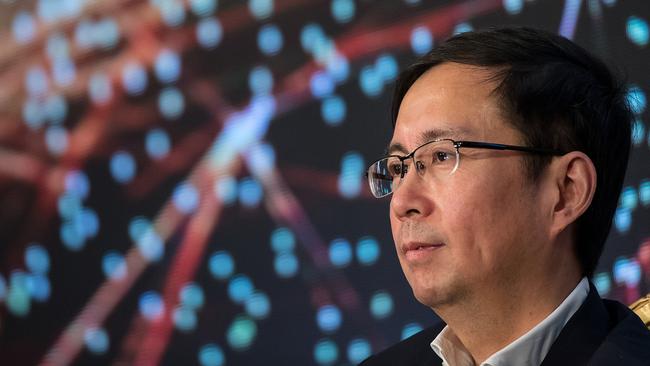Daniel Zhang: The Man behind Tmall Global
Daniel Zhang’s elevation as a successor to Alibaba chairman Jack Ma next year is good news for Australia.

The appointment of the 46-year-old Daniel Zhang as a successor to Alibaba chairman Jack Ma next year is good news for Australia.
While the charismatic Ma, who founded the Chinese e-commerce giant in 1999, receives almost all the publicity about the company, it is Zhang who has led its recent expansion into global consumer online shopping, which has provided a significant new avenue for Australian companies to sell consumer goods into China.
The Shanghai-born Zhang takes over as executive chairman a year from now and has been CEO since 2015. He was a senior manager with PwC’s audit and business advisory unit in Shanghai before becoming chief financial officer with Chinese gaming company Shanda Interactive Entertainment.
He joined Alibaba in 2007 as chief financial officer of its online shopping website Taobao, becoming president of its new business-to-consumer platform Tmall.com, which was established in 2008. He later established Tmall Global, providing a platform for foreign suppliers to sell into China.
While Ma has been travelling the world to sell the Alibaba message and meeting with world leaders, the low-key Zhang has driven a dramatic increase in the company’s consumer products focus, including an aggressive drive to expand its platforms to overseas sellers of consumer goods.
Alibaba opened its first Australian office in Melbourne last year under the leadership of Maggie Zhou, one of the early employees of the company’s Hangzhou head office. Zhang visited Australia in April this year to meet with some of the Australian companies most active on the Alibaba platforms, including Australia Post, Chemist Warehouse and Blackmores.
In an interview with this reporter during his visit, he urged Australian companies to use the Alibaba online platforms to sell into China.
“China is the largest consumer market in the world and it is transforming itself from an investment and export-driven economy to an import and consumption-driven economy,” he said.
“It is a good opportunity for all Australian business to go further into the Chinese market.”
Zhang said there were now more than 2000 small and medium-sized Australian companies selling goods into China through Alibaba platforms, particularly Tmall Global. This was up from 1300 two years ago.
Zhang has also been the driving force behind the growth of the now famous annual Singles Day sale each November 11 in China. First started by university students as a day for young people to buy goods for themselves, Alibaba took up the idea in 2009 urging retailers to offer major discounts of up to 50 per cent on goods for a one-day shopping spree.
Under Zhang, the idea grew dramatically — bringing in many more suppliers and offering short delivery times — to overtake the annual post-Thanksgiving day sales in the US, to become the largest single shopping day in the world, selling more than $US25 billion ($35bn) last November.
Australian companies such as Blackmores, Chemist Warehouse and Treasury Wine Estates have become astute users of the occasion with goods from Australia now making the third largest offshore group selling into the Singles Day sales.
In his interview, Zhang said Alibaba wanted to work more closely with Australian suppliers to sell more fresh product into China including beef and fruit. He also outlined a future where companies could use the Alibaba online sites to sell into other regions. Under Zhang, the company has boosted sales with a range of focused promotions that have provided platforms for Australian goods.
The latest is the deal with Wine Australia to bring Chinese social media celebrity twins to Australia last weekend to promote sales of Australian wine.
Dubbed the “Kardashians of China”, the 30-year-old Chufei Churan twins from Guangzhou toured wineries in South Australia and tourist spots, promoting Australia to their million-plus followers on Alibaba’s digital platforms.
The social media influencers came to Australia for the promotion to coincide with Tmall’s third annual September 9 global wine and spirits festival. Wine Australia sponsored the tour as an opportunity to promote Australian wine to a younger generation of Chinese.
Back home in China, Zhang is also overseeing the expansion of Alibaba’s new-look physical supermarkets, called Hema Fresh, from an initial base in Shanghai.
Opinions in China differ on why the 54-year-old Ma opted to announce his retirement plans from Alibaba this week. One of China’s richest men, with an estimated wealth of more than $US40bn, Ma says he is looking for new challenges with a focus on philanthropy and education.
Observers say Ma has grown tired of the endless rounds of speeches and meetings around the world that he has had to attend as chairman of Alibaba, which is now worth more than $US420bn on the New York Stock Exchange.
Others say China’s trade war with the US could put pressure on China’s big private sector companies involved in global trade into the future.
They also say the future for private sector companies in China, under the more nationalistic President Xi, could be tougher than in the past, with his moves to crack down on corruption and a range of business practices, and to bolster state-owned enterprises.
Either way, Ma’s departure as chairman next year will mark the end of an era, but Zhang’s promotion marks the emergence of a new face in Chinese business with a clear focus on aggressively promoting global trade, including with Australia.




To join the conversation, please log in. Don't have an account? Register
Join the conversation, you are commenting as Logout